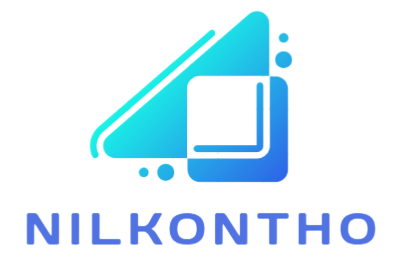The educational landscape in the United States is undergoing significant change. The conventional four-year, nearby school insight, while still esteemed, is presently not the main way to get information and accomplish professional objectives. Online school courses have arisen as a strong other option, offering adaptability, reasonableness, and a more extensive scope of instructive open doors. This article investigates the ascent of online school courses in the USA, looking at their benefits, contemplations for picking the right program, and the fate of this unique learning design.
Benefits of Taking School Courses On the Web:
There are several convincing reasons why online mentoring is so popular:-
Flexibility: One of the essential advantages of online courses is their versatility. At their own pace and convenience, students can access lectures, complete assignments, and participate in discussions. This is particularly interesting to working experts, watchmen, and occupied individuals who will not be able to move in a conventional homeroom setting.
Affordability: When compared to traditional on-campus degrees, online programs frequently offer lower costs. This is because online delivery has lower overhead costs. Moreover, online understudies might save money on costs like lodging, transportation, and course materials.
Accessibility: Online courses eliminate geological boundaries to instruction. Accredited schools all over the country offer high-quality education to students from outlying areas or with limited mobility. As a result, more people have access to various learning opportunities.
Numerous Programs: The number of online programs has significantly increased. Today, students can get degrees in everything from engineering and computer science to business and healthcare. Also, online courses take into consideration more particular learning ways, taking special care of explicit professional objectives.
Self-Paced Education: Online projects frequently permit understudies to advance at their speed. People who learn best on their own or who need more time to grasp concepts will benefit from this.
Using Technology to Learn: Technology is frequently used to create engaging learning experiences in online courses. Lectures, simulations, and virtual labs that are interactive can improve comprehension and make learning more dynamic.
Choosing the Right Course for Online College:
Although there are numerous benefits to taking online courses, it is essential to approach them strategically to ensure a successful learning experience. Here are a few key contemplations:-
Authorization: Important is accreditation. Guarantee the foundation offering the internet-based program is licensed by a trustworthy organization perceived by the U.S. Division of Schooling. This ensures that the program satisfies academic quality standards and that earned credits can be used at other educational institutions.
Image of the Program: Examine the program’s reputation and the expertise of the faculty. Look for programs that have a good track record and professors who have worked in the industry before. Additionally, reading student reviews can provide useful insights.
Learning Style: Not every person flourishes in an online climate. Consider your favored learning style. A few internet-based projects might integrate simultaneous (live) meetings with educators and colleagues, while others are completely nonconcurrent (independent).
Requirements for Technology: Guarantee you have the fundamental hardware and web admittance to partake actually in web-based courses. A speedy internet connection, a dependable computer, and possibly a webcam are examples of this.
Assistance Services: Find out more about the online program’s support options. Academic advising, career counseling, and technical assistance with online learning platform issues are all examples of this.
The Future of Online Education:
In the United States, online college courses appear to have a bright future. As innovation keeps on developing, web-based learning stages will turn out to be significantly more complex. We can hope to see expanded utilization of computer-generated reality (VR) and increased reality (AR) for vivid opportunities for growth. Also, progressions in man-made consciousness (simulated intelligence) could customize learning ways and give more hearty criticism to understudies.
Moreover, online training suppliers will probably keep on creating programs that take care of the requirements of the labor force. As the gig market requests new abilities and information at an always-expanding pace, online courses offering miniature qualifications and stackable accreditations will probably turn out to be more predominant. This permits students to obtain explicit abilities rapidly and adjust to changing industry requests.
Notwithstanding, challenges remain. Resolving issues of computerized proficiency and guaranteeing impartial admittance to innovation is essential for connecting the advanced gap and guaranteeing that all people can profit from web-based learning amazing open doors. Additionally, creative approaches are required to foster a sense of community among online students.
Final Advice:
The American educational landscape is now dominated by online college courses. They are empowering individuals to pursue their educational objectives and achieve career success by providing flexibility, affordability, and a wider range of programs. Online education has the potential to shape the future of education in the United States even more as technology advances and overcomes existing obstacles.
